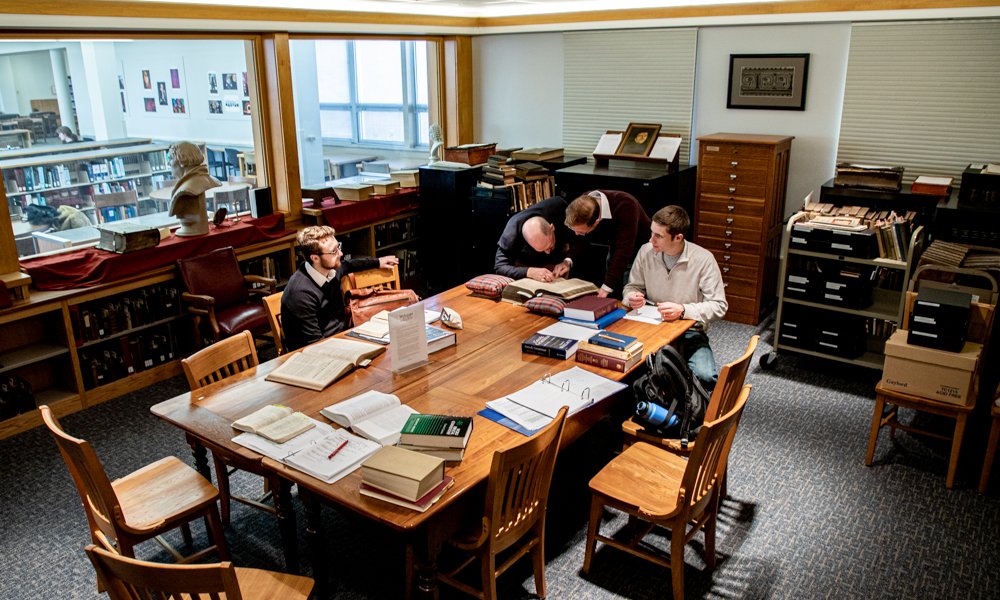
CUW pre-seminary students utilize the Rincker Library’s Rare Book Room to access centuries-old biblical commentary that is often not available in English.
For many students studying to become pastors, learning the ancient languages—such as Hebrew and ancient Greek—is one of the biggest scholarly challenges they face. For others, however, digging deep into these theological languages becomes a passion. After all, the closer you look at biblical interpretation the more important it becomes to be well-versed in the languages of the original writers.
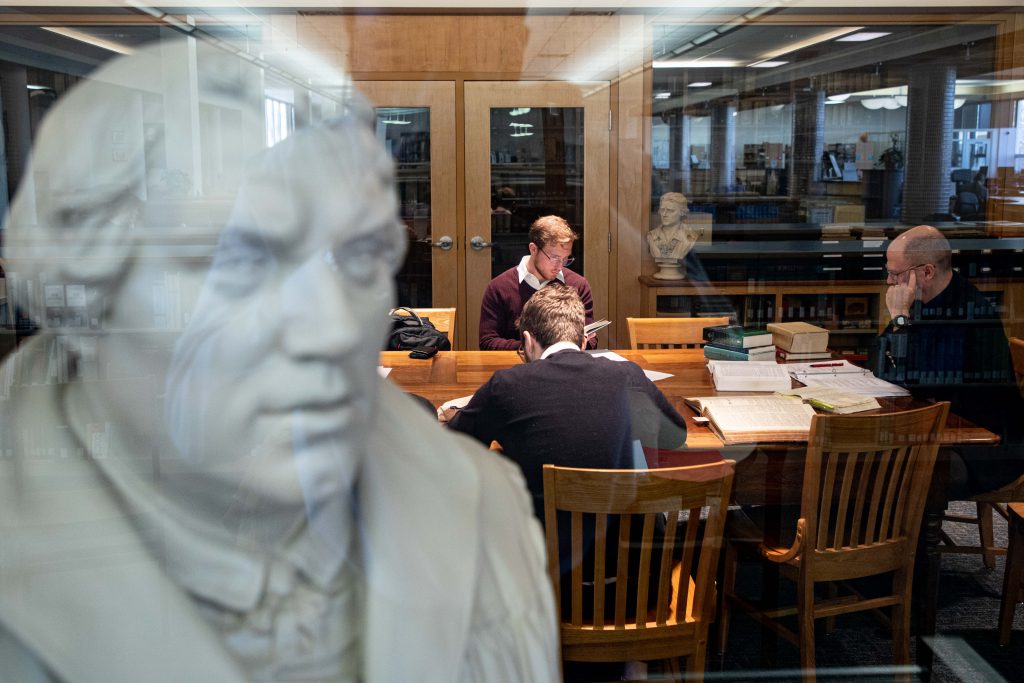
That’s why Rev. Dr. Jason Soenksen, professor of theology at CUW, is so excited about this semester’s group of Greek VI students. Though small in number, they are each passionate about the subject matter. And he’s taking advantage of the intimate learning environment to take a little different approach.
“In this class, I’m trying to teach my students not just Greek,” Soenksen explains. “That’s the main thing, but I also want to introduce them to some of the ancient resources for studying the Bible.”
Found in translation
Studying theological languages is a passion for Soenksen because of how it shines a light onto ancient interpretation. In particular he finds himself drawn to what you might call the “Lutheran Orthodox” interpretation of the Bible. That is, he wanted to know more about how Martin Luther and those who came soon after him studied the holy scriptures.
“And it turns out there’s quite a bit of biblical interpretation that’s not available in English translation,” he explains.
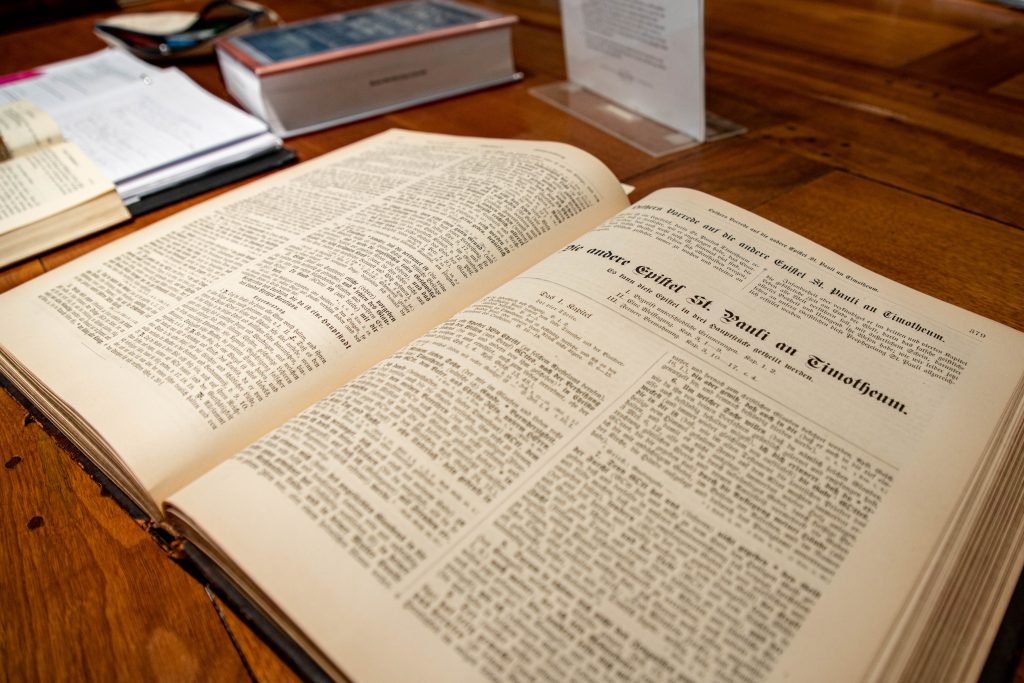
The three students in the class are Isaiah Mudge, Joe Moore, and Peter Pohlod. As seniors majoring in theological languages, each has taken at least a year of German or Latin, Soenksen explains. His hope for the class is to help the students take that study from the theoretical realm to more practical application.
“I think it would be a shame if students don’t ever really get a chance to see what benefit studying German or Latin could be as a theologian studying the Bible.”
One of the key texts they’re examining is known as the Weimar Bible, a sort of 17th Century German study Bible. In addition to the biblical text, the volume includes notes and commentary from Johann Gerhard and Salomo Glassius, two influential Lutheran theologians of the time. No English translations are available, so studying it in the original German provides nuance that translations can’t.
Another resource is a biblical commentary by Abraham Calov, a younger contemporary of Gerhard and Glassius. Again, no English translation is available, so having a copy available in the Rare Book Room represents a unique opportunity for study.
“I’m working on a section from Philippians,” Peter says, “and it’s really cool to be able to read that and get commentary that is otherwise unavailable. What would be totally inaccessible to me is now a treasure trove of wisdom and resources.”
Isaiah gives an example of how detailed translation can be helpful in accurate interpretation:
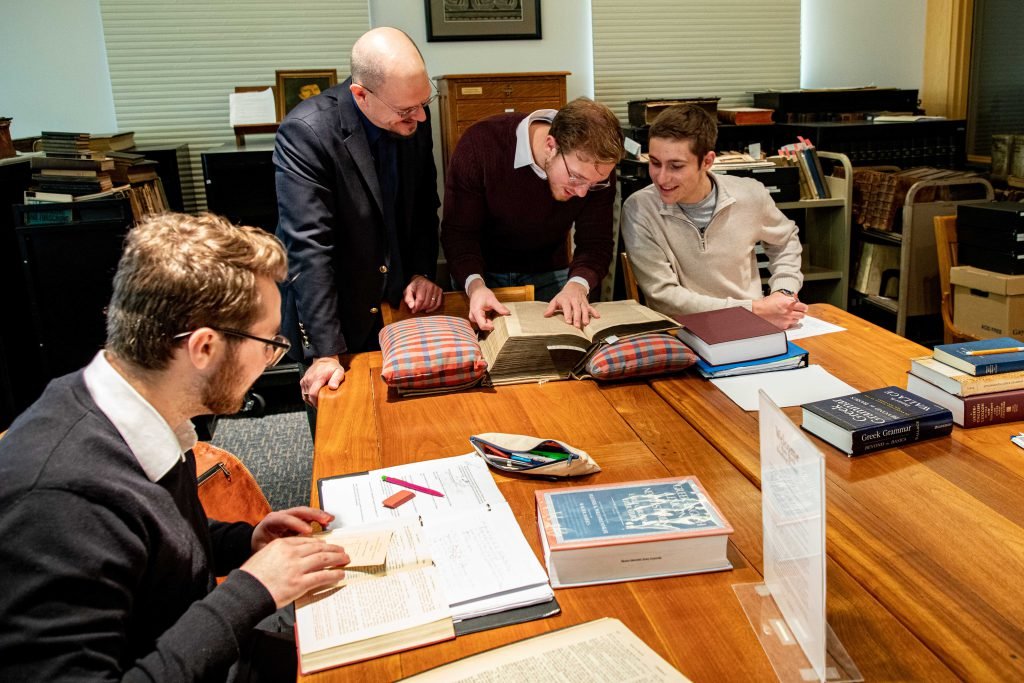
“You can see Christ’s actions in the type of word they choose to use,” he explains. “One word might suggest a long, enduring action, while another might mean an action that occurs at one time. For instance, when you see a verse that talks about Jesus Christ, and it says that ‘Jesus died to save us,’ and the word ‘save’ means a long, enduring action, it means he died to save us at all times, all people, in all places.
“Or, if a word means a single-time action, it might mean that the death was a one-time thing: nobody needs to die again; it’s been done. So, it’s really amazing what you can see in the language.”
A gift from God
All things considered, the course represents a unique opportunity to study and learn God’s Word in an in-depth way.
“This class really is something special, in that I don’t even think a lot of people at seminary necessarily get to have an experience like this,” Joe says. “We get to sit down with a very well-trained professor, who’s even written a Concordia Commentary volume, and we get to emulate and learn from him, step by step, his thinking, his process of thinking about the text, and working with the text.
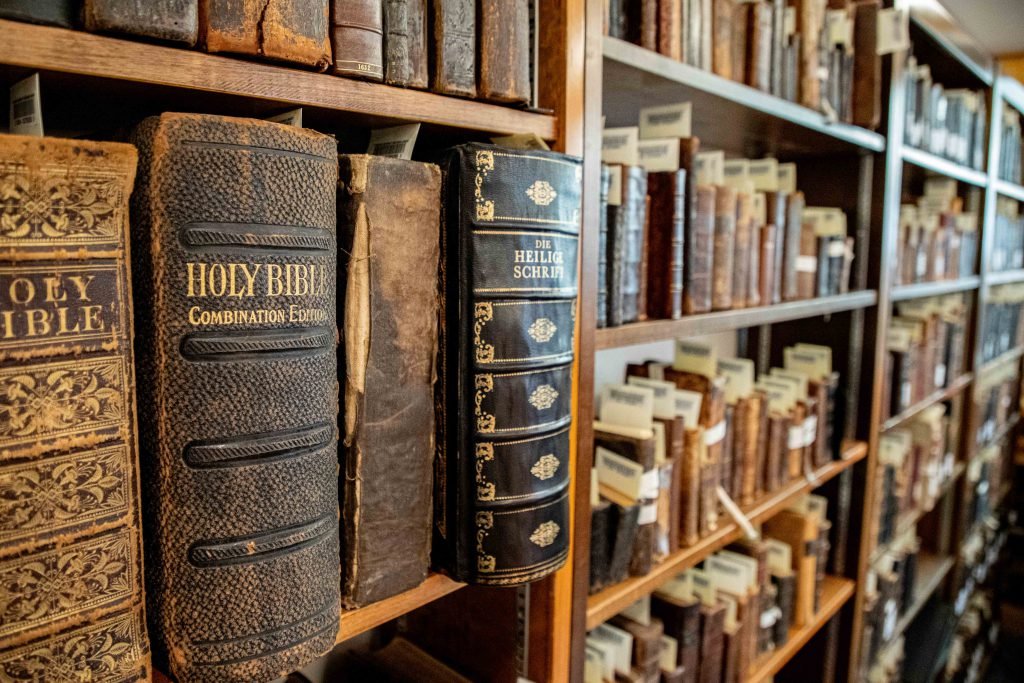
“We’ve learned so much, and we’ve covered so much, in terms of vocabulary and principal parts and the changings of words,” he adds. “I think it’s like a once in a lifetime experience, honestly, because we’ve gotten to see the process of a professional and take part in that.”
No doubt, the Arnold H. & Verna L. Moeller Rare Books Room is a special resource. One that we’re very blessed to have available on campus.
RELATED: A treasure trove of treasured tomes
“The good Lord provides and provides for this special space, and we continue to be thankful,” says Director of Library Services Christian Himsel. “Especially since the majority of old tomes housed therein are related to our Lutheran and Christian heritage in the forms of scripture, doctrine and hymnody. We really do have some uniquely special books which continue to touch the lives of students and faculty alike.”
“And without this class I may never have had the opportunity to step in here, let alone translate this book,” Peter says. “I’ve really, really enjoyed it. I love working through this stuff.”
Want in?
At CUW, you can expect members of the Theology Department to teach the timeless truth of the Bible with energy and warmth, applying the Gospel message to each student’s life. Our faculty have a wide range of experience in church ministry and teaching. CUW students come from a wide range of religious backgrounds and are encouraged to bring those experiences into the class discussion. Together, professors and students gather around the truth of the Scripture to be shaped by the Gospel of Jesus Christ for lives of faithful service.